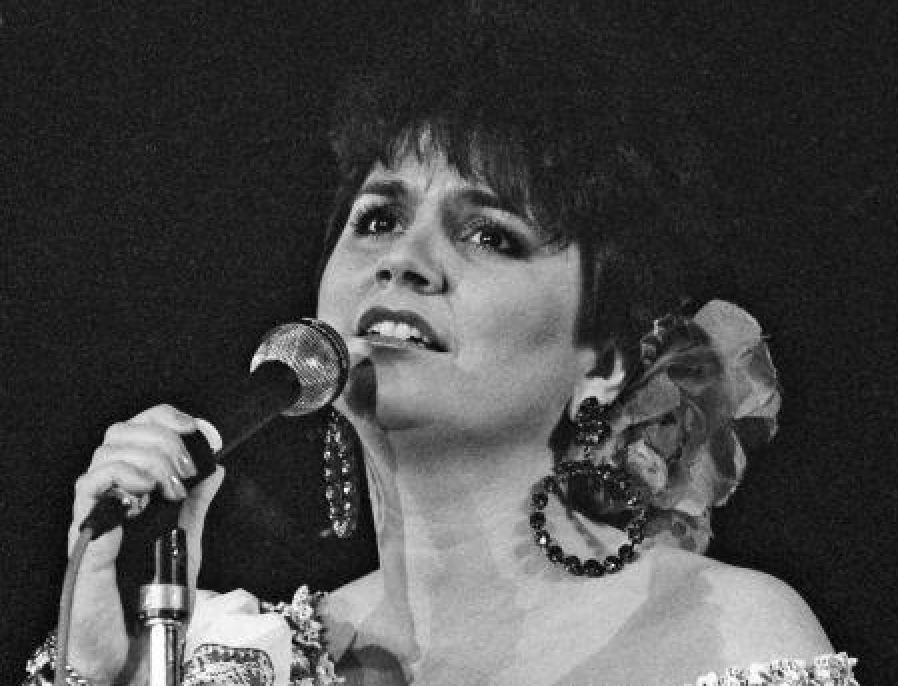
“Crazy He Calls Me” is a love song that doesn’t try to sound sensible—Linda Ronstadt sings it like a private confession, the kind you’d only admit when the room is quiet and the heart has stopped pretending.
Linda Ronstadt recorded “Crazy He Calls Me” as track 4 on her 1983 standards album What’s New (released September 12, 1983), produced by Peter Asher with Nelson Riddle as arranger and conductor. If you want the “at launch” chart coordinates: What’s New debuted at No. 93 on the Billboard 200 (chart date October 1, 1983) and eventually rose to a peak of No. 3, holding that position for multiple weeks. It also reached No. 2 on Billboard’s jazz albums chart and was RIAA-certified 3× Platinum in the U.S. “Crazy He Calls Me” itself was not the main chart-driving single in America—this album’s singles were led by the title track and “I’ve Got a Crush on You”—so the song’s legacy is less about a single’s debut rank and more about the way it deepens the album’s spell.
The song’s story begins long before Ronstadt stepped into The Complex in Los Angeles. “Crazy He Calls Me” is a 1949 jazz standard, credited to Carl Sigman (music) and lyricist Bob Russell (also known as Sidney Keith Russell in some credits). Billie Holiday made the first recording in 1949—one of those performances that didn’t just interpret a lyric, but permanently haunted it. That’s the steep hill any singer climbs when they choose this song: you’re not only singing about love; you’re singing in the long shadow of a voice that once turned pain into velvet.
And yet Ronstadt chose it anyway—right in the middle of a project that, on paper, looked like career mischief. In 1983, she was widely seen as a rock star at the height of pop fame, and What’s New was a deliberate pivot into pre-rock repertoire, arriving just as “Adult Standards” radio was gaining new traction. What could have been treated as “tasteful cosplay” became something far more serious: the album spent 81 weeks on the Billboard album chart, earned Ronstadt a Grammy nomination for Best Pop Vocal Performance, Female, and helped pull the Great American Songbook back into mainstream attention.
Within that larger arc, “Crazy He Calls Me” functions like the album’s midnight hour. It runs 3:33, and it’s built around the kind of orchestral hush that Nelson Riddle understood better than almost anyone—strings that don’t smother, horns that don’t shout, space left open for the singer’s breath and doubt. There’s even a telling detail in the personnel: the tenor sax solo on this track is played by Plas Johnson, whose tone can sound like a slow exhale—worldly, a little bruised, and impossibly elegant.
What the lyric offers is not the proud romance of certainty, but the more dangerous romance of surrender. The narrator lists the evidence against the beloved—his flaws, his thoughtlessness, his capacity to make her look foolish—and then answers it all with a shrug that feels like fate: I love him. The phrase “crazy” here isn’t cute. It’s the moment you realize love can rearrange your sense of dignity. Ronstadt sings the song as if she knows that truth personally—not as gossip, not as melodrama, but as lived human weather. She doesn’t “play” heartbreak; she lets it sit beside her like an old companion.
And that’s why this recording still lands with such quiet force. Ronstadt’s voice—famous for power when she wanted it—chooses control instead. She makes the devotion sound real, and therefore a little frightening. Because real devotion carries risk: it can turn us into people we don’t recognize, people willing to forgive what they once swore they never would.
In the end, “Crazy He Calls Me” on What’s New is Ronstadt’s reminder that sophistication isn’t coldness. It’s clarity. It’s the courage to admit: sometimes love doesn’t make sense—sometimes it doesn’t even make us better—but it makes itself true inside us anyway, and we spend a lifetime learning how to live with that strange, radiant fact.